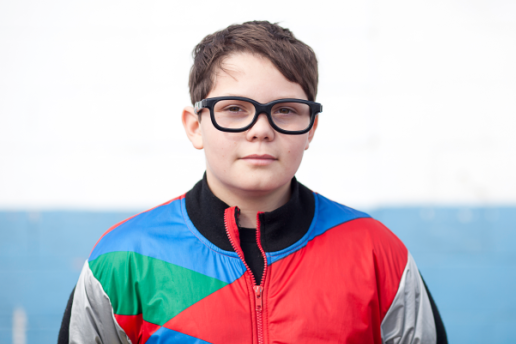 Every year, more than 23,000 American teenagers will age out of foster care, resulting in an increased likelihood of significant life challenges such as homelessness, substance abuse, and incarceration. As anyone who was once a teenager remembers, this is a critical developmental moment—a time when guidance, mentorship, support, and consistency from caregivers can be life-changing.
Every year, more than 23,000 American teenagers will age out of foster care, resulting in an increased likelihood of significant life challenges such as homelessness, substance abuse, and incarceration. As anyone who was once a teenager remembers, this is a critical developmental moment—a time when guidance, mentorship, support, and consistency from caregivers can be life-changing.
“During the transition from adolescence to adulthood, youth achieve important developmental milestones, such as learning decision-making and coping skills and becoming more independent. Older youth often rely on family and other supportive adults to help them during this transition by providing guidance as well as a financial and emotional safety net. However, these supports are often unavailable to older youth who are leaving the foster care system,” write Rachel Rosenberg and Samuel Abbot on childtrends.org.
In fact, national studies have shown that within two to four years of leaving foster care at age 18:
- 40% were homeless
- 40% were receiving public assistance or were incarcerated
- 40% experienced drug or alcohol abuse
- 46% had not finished high school
- 51% were unemployed
- 84% became parents
Teens need supportive adults in their lives that can help prepare them and guide them into adulthood. -Amy Fogel, Children’s Home Foster Care and Adoption Supervisor
 Recognizing the need for youth to be placed in safe, stable, temporary homes, we have launched our Foster-A-Teen Program. This new educational training program—open to families in Minnesota—was developed to provide current and potential foster parents with the tools, resources, and education they need to help meet the higher needs of older youth in foster care.
Recognizing the need for youth to be placed in safe, stable, temporary homes, we have launched our Foster-A-Teen Program. This new educational training program—open to families in Minnesota—was developed to provide current and potential foster parents with the tools, resources, and education they need to help meet the higher needs of older youth in foster care.
“It’s important for all youth to be in a safe home,” says Amy Fogel, Children’s Home Foster Care and Adoption Program Supervisor. “Teens need supportive adults in their lives that can help prepare them and guide them into adulthood. They are often given unfair labels and there is a lack of understanding of what they are going through.”
Many teens in foster care have experienced some type of trauma and grief and loss. Due to their life circumstances, they may have emotional, behavioral, or mental health needs. They also may have been involved with juvenile corrections. “Teens, like everyone else, make mistakes,” says Amy. “They need supportive adults in their lives who continue to care for them and believe in them even though the mistakes they’ve made.”

Ideal caregivers for teens in this program will be flexible, supportive, committed, open-minded, patient, and have a sense of humor. They should have empathy, compassion, understanding, and acceptance for the youth in their care. It is also incredibly important for caregivers to champion, guide, and support teens to help build strong foundations for future success in school, jobs, and relationships.
Are You Ready to Foster-A-Teen? Take the First Step Today!
If you would like to open your heart and home to a teen in need, please visit our Foster-A-Teen information page and submit the inquiry form. If you meet our eligibility requirements, we will then refer you to our online education classes that focus on the specialized skills needed to parent teens.


